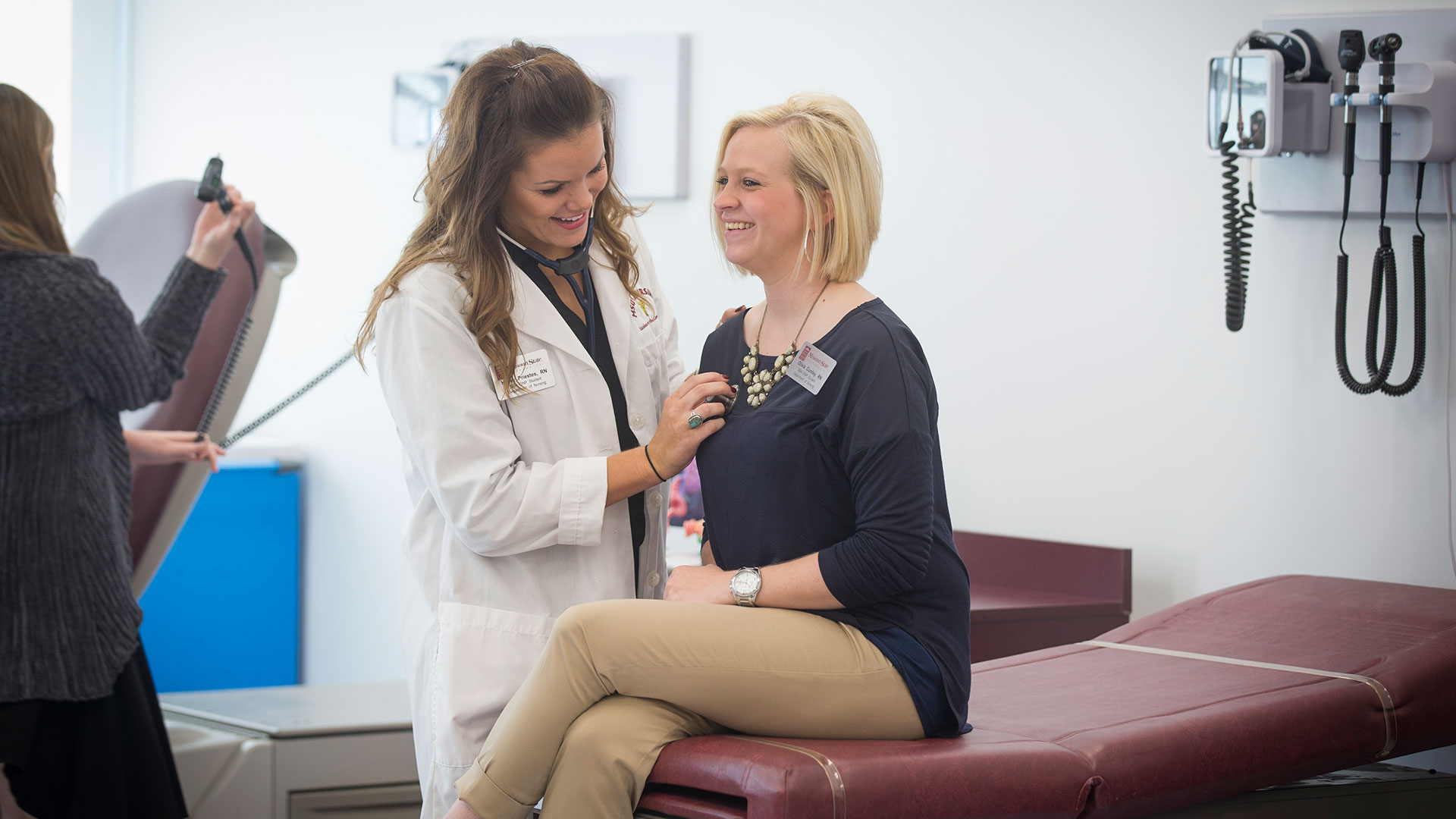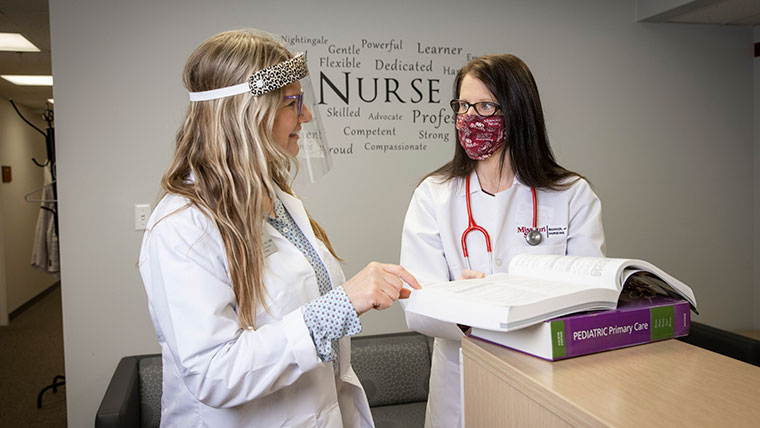BSN to DNP: Family Nurse Practitioner Option

Provide comprehensive care for all ages
Reach the highest clinical level of your career: family nurse practitioner (FNP).
Give better primary care to underserved populations. Diagnose, treat, educate and manage patients throughout the lifespan.
Thrive as an FNP at your practice.
Degree options
Want to take the family nurse practitioner option? Review the program requirements for the exact courses you need to take.
Use a four-year plan as the guide for your overall schedule.
Why take the family nurse practitioner option?
- Have flexibility with your courses - Study on your schedule. This option has a hybrid format, where you take both online and seated classes.
- Get local experience - Complete your required clinical rotation at MSU Care, a primary care clinic that is a convenient on-campus option.
- Keep your academics in your price range - Want an education that is affordable? Get the high-quality education that you expect while saving on tuition costs.
- Become certified for FNP practice - Be eligible and prepared to take the FNP national certification exam to practice as an FNP in primary care. Our students have a 100% first-time pass rate for this exam.

Ethics
Here, you'll live by a code of ethics and adopt a culture of caring.
Accreditation
The BSN, MSN, DNP and post-master's certificate programs at Missouri State University are accredited by the Commission on Collegiate Nursing Education (http://www.ccneaccreditation.org).
Graduate Nurse Practitioner Programs are not regulated in Texas by Section 132.001(1)(B).
Approval
Missouri State Board of Nursing: Bachelor of Science in Nursing (four-year BSN).



